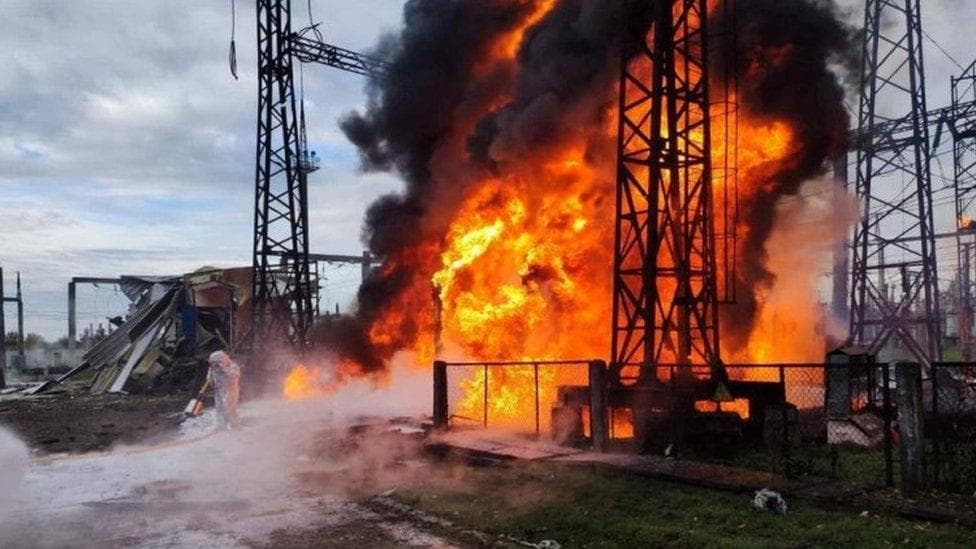Ukraine Strikes Power Station East of Moscow, Cuts Heating for Thousands
Ukrainian drones struck the Shatura Power Station about 120 kilometers east of Moscow on Sunday, sparking a major fire and interrupting heating for thousands as emergency crews deploy backup units. The strike marks one of Kyiv's deepest and most consequential strikes on Russian energy infrastructure, raising questions about escalation, grid resilience, and economic fallout as Russia moves into the heating season.

Ukraine has carried out a drone strike on the Shatura Power Station, a combined heat and power facility located roughly 120 kilometers east of Moscow, injuring no reported casualties but igniting a large fire and triggering heating interruptions for thousands of nearby residents. Regional authorities report emergency services have mobilized backup generation and heating units to restore service, while Moscow officials condemn the attack and promise investigation and response.
The assault is being described by analysts as one of the most significant Ukrainian strikes to date on energy infrastructure deep inside Russian territory. It comes after months of cross border operations that have increasingly used long range drones and precision guided munitions to target logistical hubs, power stations and airfields. The tactical reach demonstrated by the strike undermines the assumption that facilities well beyond the frontline are insulated from conflict.
The timing is economically and politically sensitive. Late November ushers in the Russian heating season when demand for heat and power typically peaks. Interruptions to district heating can cascade into public discontent, higher emergency spending and political pressure on regional administrations to deliver rapid restoration. Emergency deployment of backup units suggests authorities are prioritizing short term relief, but restoration timelines for damaged generation and distribution infrastructure remain uncertain.
Market implications are likely to be uneven but noticeable. Domestic Russian energy firms may face higher repair costs and increased insurance premiums for assets vulnerable to cross border attacks, squeezing margins already affected by Western sanctions and low foreign investment. For national policymakers the attack heightens the case for increased spending on hardening energy infrastructure, which could divert resources from other priorities or accelerate procurement of defensive systems such as anti drone capabilities and air defenses. International energy markets may see limited direct impact because Russia is now more insulated from European gas demand dynamics than in past years, but prolonged disruptions or a pattern of repeated strikes could feed into risk premia for regional utilities and raise costs for Russian industrial consumers.
Strategically, the strike signals an intensification of Ukraine's campaign to degrade Russian warfighting capacity by targeting the logistical and energy backbone behind military operations. If repeated, such operations raise the prospect of a feedback loop of escalation, provoking retaliatory measures that would further complicate civilian energy provision. For European and global policymakers the event underscores the need to consider resilience measures for critical cross border infrastructure and to reassess contingency planning for supplies and humanitarian responses during winter months.
For residents of the Shatura area the immediate concern is warmth and restored electricity. For Moscow and Kyiv the strike recalibrates the conflict over the infrastructure that sustains civilian life, while exposing the economic and political strain that comes when battlefront tactics reach into the national power grid.


